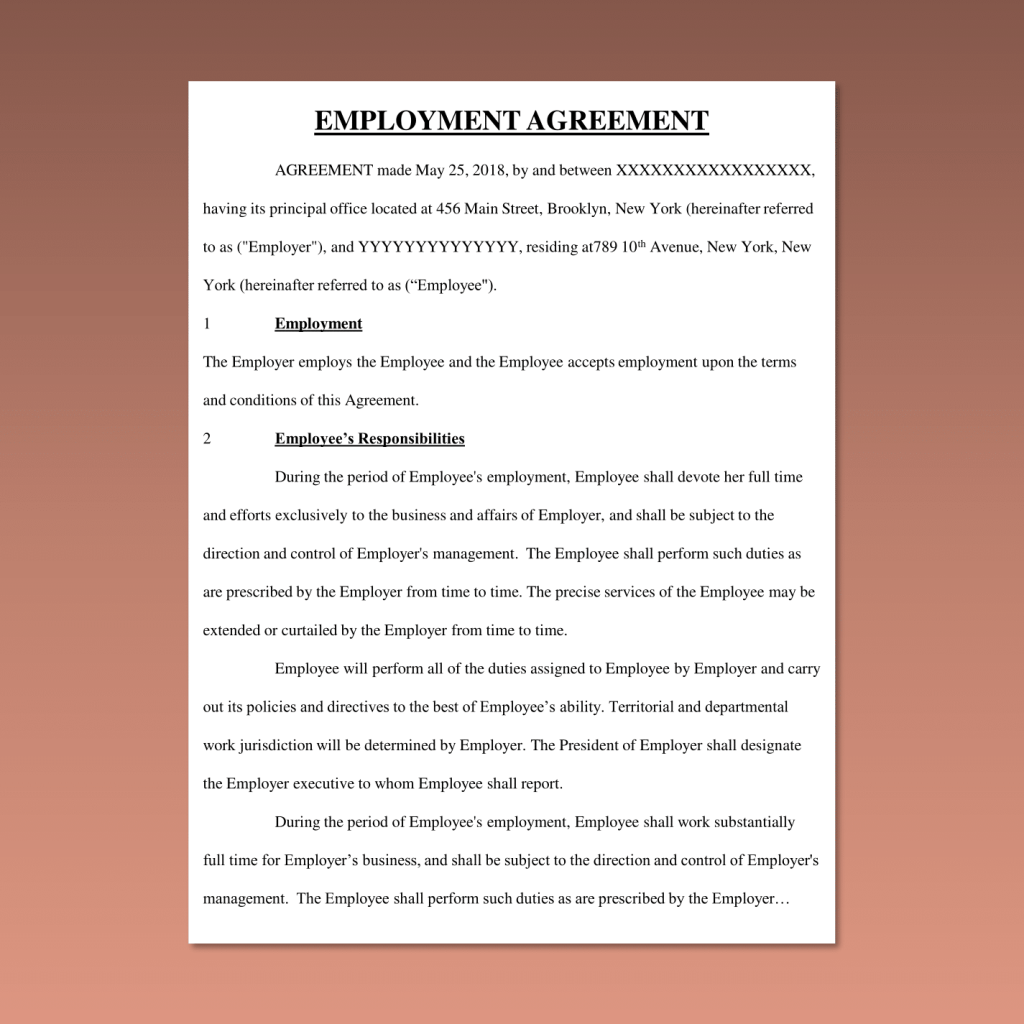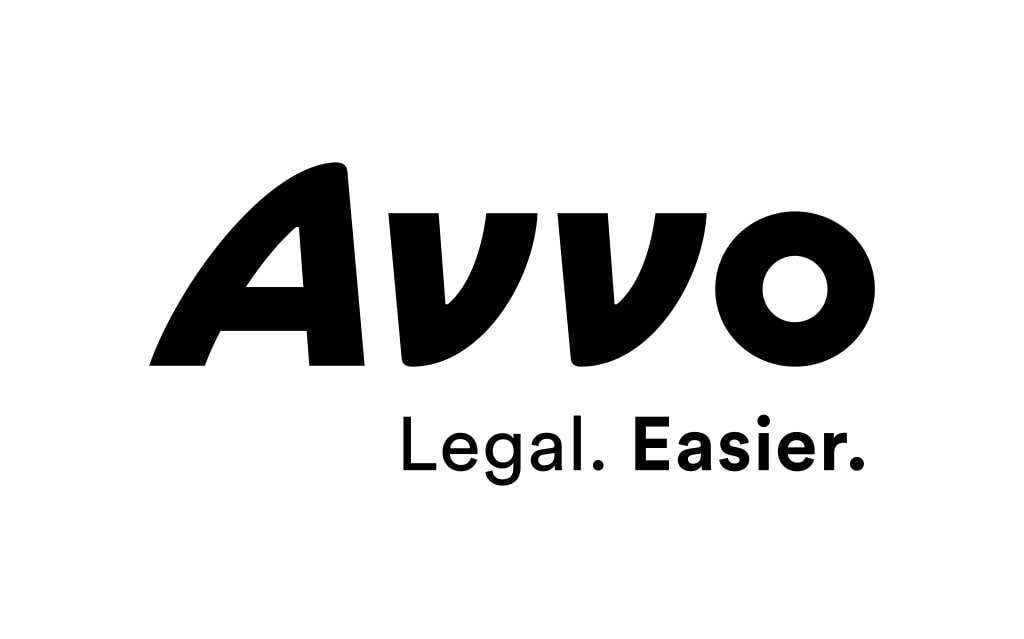Employment Agreements & Independent Contractor Agreements

Many workers will enter into one or more employment agreements during their careers. It is important that the worker be represented by a lawyer who is experienced in negotiating and drafting employment contracts. The worker’s employment agreement should include various provisions, such as :
Employee’s Duties & Responsibilities
The employment agreement should describe the employee’s duties and responsibilities to the employer, the locations where the employee will be required to perform services, the number of days and hours the employee will be required to work, and the employee’s other responsibilities.
Term of the Employment Agreement, & Events That May Trigger Earlier Termination
The employment agreement should state the term of the agreement, including the beginning and ending dates of employment. The agreement should also specify those events that would give either the worker or the employer the right to terminate the agreement before the end of the term.
Compensation
The employment agreement should state the monetary compensation that the worker will receive. This may include a base salary, commission, percentage of profits, and bonus based on objective performance standards.
Paid Vacation, Medical Insurance & Other Fringe Benefits
In addition to the worker’s salary and other compensation, the employment agreement should clearly state the fringe benefits that the worker will receive, such as paid vacations and sick leave, medical, dental and eye care insurance, life insurance, disability insurance, and retirement plan.
Restrictive Covenants
The employment agreement may include some restrictive covenants limiting the worker’s permissible future employment and self-employment activities within a specific geographic location, after the expiration or earlier termination of the employment agreement.
Restrictive covenants should be carefully reviewed by an experienced employment contracts attorney, and negotiated according to geographic area, length of time and other factors, to ensure that the non-compete provisions will not unnecessarily hamper the worker’s employment opportunities after the expiration or termination of the employment agreement. Non-solicitation of the employer’s clients or customers, as well as non-disclosure of confidential information, are also typically requested by employers.
Employment Agreements for Physicians, Dentists, Chiropractors, Podiatrists & Other Medical Practitioners
Many physicians, dentists, chiropractors, podiatrists, and other medical practitioners will enter into one or more employment agreements during their careers. The doctor must be represented by a lawyer who is experienced in negotiating and drafting employment agreements, especially in the medical profession. For more information, click Employment Agreements for Doctors.
Professional Partnership Agreements
When a lawyer, accountant, architect, doctor, etc. joins a professional practice, such as a law firm, accounting firm, architectural firm, medical practice, etc., as a partner, or if his or her employment matures into a partnership, it is even more important that the parties enter into a written agreement that defines each party’s rights and responsibilities.
If the new partner is acquiring an equity interest in the professional practice, the agreement will be more comprehensive than the agreement for an employee of the professional practice. In addition to the provisions applicable to an employment relationship, the partnership agreement should also include “buy-sell” terms, such as provisions regarding the voluntary sale of an equity interest in the professional practice, and provisions relating to retirement, disability, death, etc.
Depending on the legal status of the professional practice (Partnership, Limited Liability Partnership, Professional Corporation, or Limited Liability Company), the agreement may be a Partnership Agreement, Shareholders’ Agreement, or Operating Agreement.
The Importance of Carefully Negotiated & Drafted Employment Agreements
We strongly believe that a carefully negotiated and drafted employment agreement is the employee’s best assurance that the employment relationship will fulfill the worker’s expectations. Often the worker would not have accepted the employment offer, if not for particular promises made by the employer. The written employment contract protects the employee, in the event that the employer later denies having made those promises, or agreed to those terms.
Likewise, we believe that the written employment contract is the employer’s best protection against a rogue employee who might otherwise take the employer’s client or customer lists, and other highly sensitive proprietary information, and use that confidential information to unfairly compete against the employer, or lure the professional practice’s support staff to the worker’s new firm.
Independent Contractor Agreements
If you are a lawyer, accountant, architect, etc., or other professional who is providing services as an independent contractor, you are probably providing professional services to many clients. When you accept a temporary, part-time, or other non-employment assignment, you have rights, responsibilities, and obligations, such as the parameters of the services to be provided, compensation, and payment terms.
If there is no signed written agreement expressing a clear understanding as to each party’s rights and obligations, what will the parties refer to if a misunderstanding or disagreement occurs?
Unresolved disputes may lead to undesirable results such as non-payment, early termination by either party, the “employer’s requests for unanticipated additional services without additional compensation, or the independent contractor’s requests for additional compensation which the “employer” did not anticipate, and considers to be unreasonable. Our experience supports our belief that a carefully negotiated and drafted independent contractor agreement is the best protection for both parties.
Employers Need Legal Protection Too
When a “employer” hires a worker either as an employee or as an independent contractor for a project, the employer has legitimate interests, such as ensuring that the employee or independent contractor will not terminate the employment or contractual relationship before the project or anticipated term is completed. The employer also wants to ensure that the worker’s fees will continue through the agreed term at the agreed fees or daily, weekly, or annual rate of compensation. Furthermore, the employer may need to protect valuable confidential information such as customer or client lists, as well as prevent the employer or independent contractor from utilizing the proprietary information gained in the course of employment to unfairly compete against the employer. Properly drafted employment agreements, independent contractor agreements, partnership agreements, shareholders’ agreements or operating agreements may address these issues, as well as other important terms of the relationship.
Carefully Negotiated & Drafted Employment Agreements Can Minimize Misunderstandings & Disputes
Misunderstandings and disputes may create an unpleasant working environment and could result in a lawsuit. By minimizing such misunderstandings, our goal is to avoid expensive and time-consuming litigation.
Every lawyer, accountant, architect, or other worker who is an employee, independent contractor, partner, shareholder or other equity owner of an interest in a professional practice, and every professional practice contracting with workers as employees, independent contractors or partners should be protected by a carefully negotiated and drafted employment contract, independent contractor agreement, partnership agreement, shareholders’ agreement or operating agreement.
Employment at Will
Most employer/employee relationships in New York State are considered “employment at will.” Generally, this means that unless there is a written employment contract or a union contract, the employer can generally fire the employee without cause. Similarly, the employee can leave the job without fear of being liable for monetary damages for not continuing the employment.
Although employers may not discriminate against employees based on race, religion, age, sex or other protected classifications, the employment at will can be terminated for most other reasons. A written employment contract can dramatically change these terms.
Employee or Independent Contractor?
Generally, an employer must withhold income taxes, withhold and pay Social Security and Medicare taxes, and pay unemployment tax on wages paid to an employee. By contrast, an independent contractor is legally responsible for paying his or her own income taxes, Social Security, and Medicare taxes, since there are no payroll deductions.
The independent contractor does not enjoy the fringe benefits that employees regularly receive; such as sick leave, vacation pay, health insurance, retirement benefits, or workers’ compensation coverage.
The Internal Revenue Service cautions that business owners must correctly determine whether the people providing services are employees or independent contractors. The IRS is suspicious of independent contractor agreements that might attempt to incorrectly designate an employee as an independent contractor.
In determining whether a worker is an employee or an independent contractor, the following are some guidelines to consider:
- If there is a signed written agreement that identifies the worker as either an employee or an independent contractor, that may have some relevance in determining the true nature of their legal relationship. Keep in mind however that the Department of Labor and the Internal Revenue Service will not simply accept the parties’ written agreement as conclusive proof of the nature of their legal relationship.
- If the “employer” for whom the services are provided maintains supervision, direction, and control over the worker, that suggests that the worker may be an employee, rather than an independent contractor.
- If the “employer” provides fringe benefits to the worker, such as sick leave, vacation pay, health insurance, retirement benefits, or workers compensation coverage, that suggests that the worker may be an employee, rather than an independent contractor.
- If the worker owns his or her business and provides the services through that business entity to several “employers” or clients, that suggests that the worker may be an independent contractor, rather than an employee.
- If the worker has the right to control the manner of the work, time of work, the location where the work is performed, and the methods utilized to accomplish the work, that suggests that the worker may be an independent contractor, rather than an employee.
- If the worker brings his or her own tools and equipment to the work site, that suggests that the worker may be an independent contractor, rather than an employee.
- If the company provides all the tools and equipment or provides an office for the work to be performed, that suggests that the worker may be an employee, rather than an independent contractor.
- If the worker provides work, labor, or services for many “employers” or clients, that suggests that the worker may be an independent contractor, rather than an employee.
Please keep in mind that these are only some of the factors that the IRS will consider in determining whether a particular person providing services is an employee or an independent contractor.
Contact Our New York Employment Lawyer
To discuss your New York Employment Agreement, Independent Contractor Agreement, or employment dispute, or to discuss your concerns regarding a contemplated employment or independent contractor relationship, partnership, or other equity interest, we invite you to complete our Employment Law Questionnaire. You may also call Michael W. Goldstein for a free initial telephone consultation, or to schedule a consultation at our office.
General Disclaimer
Visiting our website, submitting any information via questionnaire or email, or discussing your NY Employment Agreement, Independent Contractor Agreement, or employment dispute with us does not create an attorney-client relationship. An attorney-client relationship with our law firm can only be established with the signing of a written retainer agreement prepared by our law firm.
Prior results do not guarantee or predict a similar outcome concerning any future case or legal matter.
New York Employment Lawyer Disclaimer
Our website contains general information to assist our visitors in understanding various aspects of New York law, including NY employment contracts, New York employment agreements, New York independent contractor agreements, NY partnership agreements, NY shareholders’ agreements, NY LLC operating agreements, New York employment law, New York commercial law, New York commercial litigation, NY business law, and NY contract law.
The information contained in this website is not intended to constitute legal advice, nor to create an attorney-client relationship or lawyer-client relationship. We recommend that you discuss your legal matter or case with a New York employment contracts lawyer, New York employment law attorney, or NY business lawyer promptly.
This website is not intended to solicit clients for employment contracts, independent contractor agreements, employment law, litigation of employment law disputes, or any other contract lawsuit or legal matter outside of New York State.
Law Offices of Michael W. Goldstein is a New York contracts law, business law, and commercial law firm representing clients in negotiating, drafting, and interpreting New York employment contracts, New York independent contractor agreements, NY partnership agreements, and numerous types of business and commercial contracts.
We also represent diverse workers, professionals, and other clients in various legal matters involving employment agreements, independent contractor agreements, partnership agreements, commercial and business transactions, commercial litigation, labor law litigation and employment law litigation throughout New York State, including New York City, Manhattan, Bronx, Brooklyn, Queens, Staten Island, Long Island, Nassau County, Suffolk County, Westchester County, Rockland County and upstate New York.
Law Offices of Michael W. Goldstein
New York Employment Lawyer
New York Employment Agreements
New York Independent Contractor Agreements
Free Phone Consultation
Attorney Advertising





